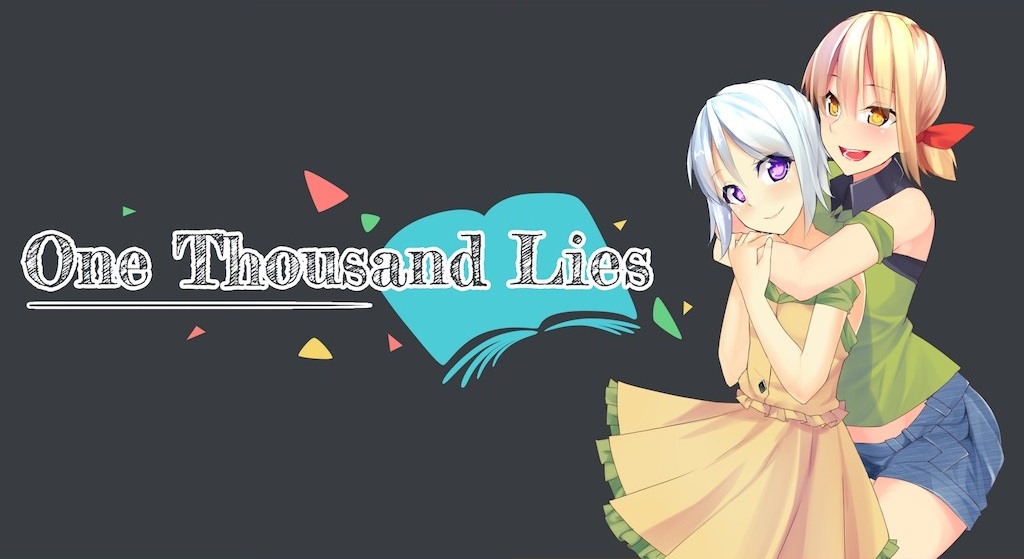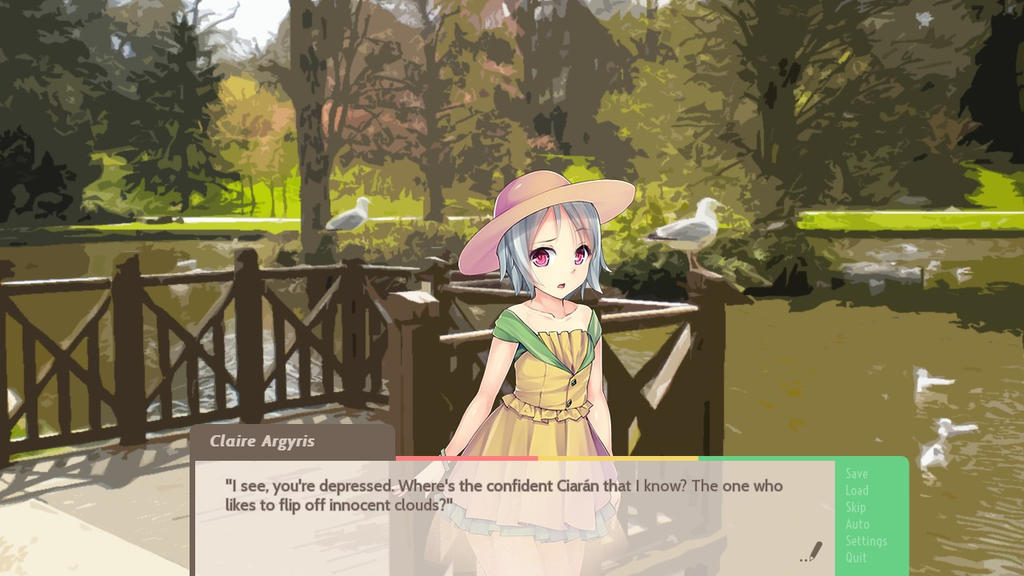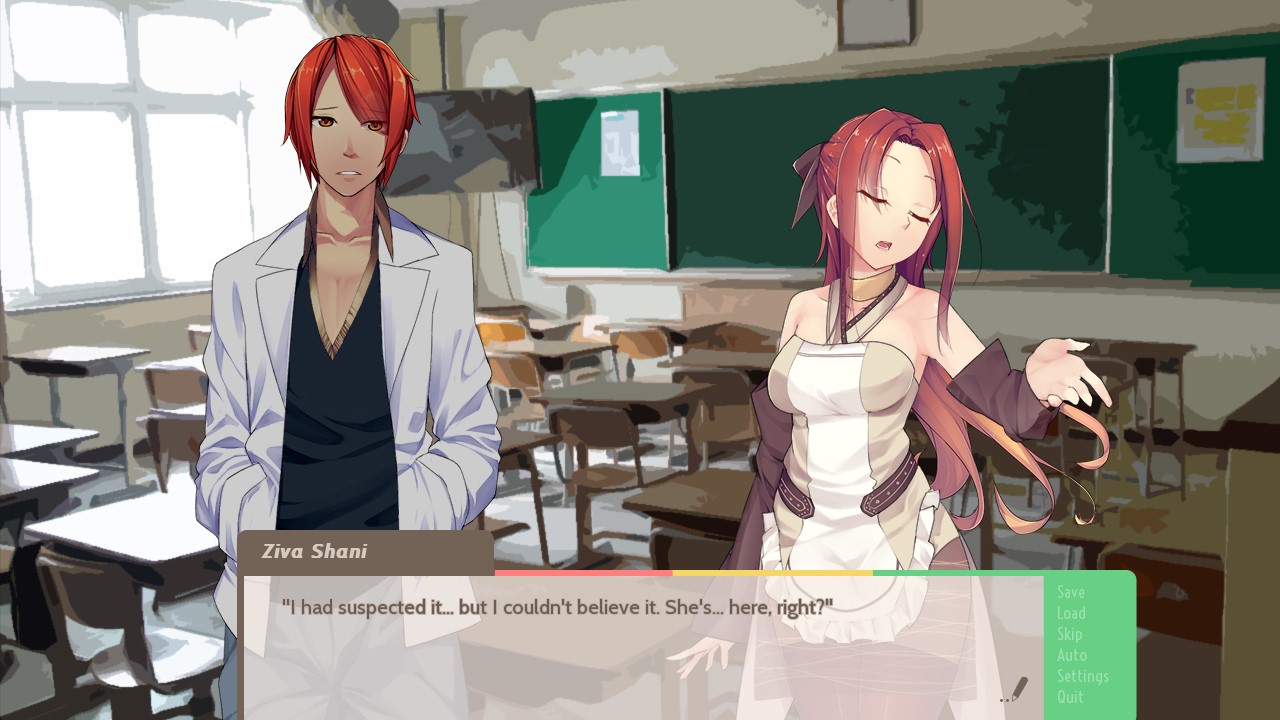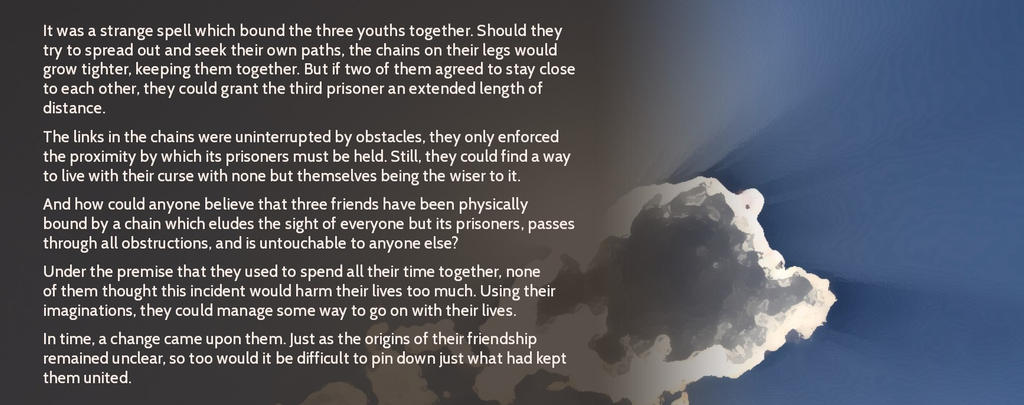
This review was originally published on Fuwanovel Forums on December 8th 2017
As we all know from experience, the formula of visual novel offers various possibilities when it goes to storytelling techniques, making especially the high-budget, Japanese games in the genre much more than just interactive, illustrated books. Still, for most VNs text is unquestionably the core method of delivering the story. This is true especially for the western-developed ones, which rarely can afford high-quality voice acting or animated segments which could occasionally replace written dialogues and descriptions. Even CGs, in a project with a very limited budget and manpower, often end up being few and far between. All this makes the literary quality absolutely crucial for the success of such projects. But, great writing is not something you would expect to find in a free game on Steam, is it?
While Doki Doki Literature Club proved that a free-to-play, western-made VNs can from time to time surpass everyone’s expectations, in many ways it wasn’t the first project of its kind. One Thousand Lies, developed by Keinart Lobre and released for free in March 2016, both on Steam and mobile platforms, is another example of an interesting and well-developed non-JP visual novel that doesn't charge even a cent for the possibility of reading it. In my opinion, it’s also one of the more intriguing and creatively written western VNs to date, that can offer a lot of depth and artistic qualities to any reader patient enough to uncover them. Still, it never gathered attention and recognition similar to that of DDLC.
The game doesn’t shy away from metaphors, symbolism and poetic segments – it’s most likely it’s bigger strength, but some mind find it overbearing
Why do I mention patience at the very beginning of my review though? OTL is a mystery/romance VN, with the emphasis being definitely on the “mystery” part. The story, if we ignore the rather cryptic prologue scene, might at first seem like a casual slice-of-life. It follows Ciaran, an apparently average male high-schooler with a somewhat nasty attitude and his small group of close friends, in a setting of a small Spanish town. Yet, it quickly introduces a sequence of strange, inexplicable events, that make you question the logic of the plot and clearly suggest a deeper meaning behind it all. Unrealistic, over-the-top comedy segments, occasional references to philosophy and psychological theory, poetic fairy tales written by the protagonist (beautifully crafted, but at first unclear in their meaning), all further encourage the feeling that we’re missing something crucial, necessary to connect the dots. Like in many stories of this kind, the author insists on keeping his audience in the dark until the very last moments, where with a new revelation everything comes together, giving sense to all past occurrences and previously incomprehensible actions of the characters. The downsides of this approach are pretty obvious - even Steam reviews clearly shows, that for less dedicated readers this form of storytelling might be too confusing and even boring, especially because there's little that player can do to solve the mystery by him/herself.

The names and appearance of the characters are never without hidden meaning – although uncovering some layers of the story might be a little too complicated, even for a careful and dedicated reader
With OTL being a kinetic novel, it's hard to deny that its style of storytelling can be especially taxing on the player, who has no influence over the action on screen and can only passively observe and try to put the pieces of the puzzle together – most likely without much effect, as the most important parts are intentionally kept hidden from him. Still, while the ultimate meaning of the story reveals itself very late, the core content offered in the meantime is by itself very much worth reading. Well-written dialogues, surprising, absurd humour and interesting characters, all with their own quirks and mysteries to uncover, can make even the most casual moments of OTL quite engaging and fun to read. Darker themes, mostly connected to the protagonist’s mental health (which is, in reality, much more important than the theme of lies and deception, suggested by the title), shows up gradually and constantly poses new questions and adds new layers of meaning to the plot. A patient reader is also rewarded with an ending in my opinion worthy of all the build-up leading to it – bitter-sweet to some extent, but compelling and hopeful enough to leave you satisfied (and maybe even quite moved – it definitely made my eyes go teary for a few moments).

The game’s visuals might be limited, as it often is with one-person passion projects, but still manage to be rather consistent and pleasing to the eye
All this is supported by the somewhat simple, but appealing visual assets. The most memorable part of the graphical layer is definitely the gorgeous, masterfully designed character sprites, which gives the game much of its personality. Those are supported by good-looking CGs (although there’s very few of those – 7 in the whole game) and basic photographic backgrounds, edited well-enough to not stand out in a negative way. Similar things can be said about music, which never stood out to me very much, but complimented the rest of the content very well – while I definitely think literary qualities are OTL’s greatest strength, other aspects are also all-around solid. One thing that also has to be mentioned is that the game seemed to be originally developed in Spanish. This makes the English version I’ve played that more impressive – it never felt like a translation from a probably superior original, but exactly the high-quality product it was meant to be.
In summary, I strongly encourage every VN fan to give One Thousand Lies a try. It’s definitely not a perfect game and the storytelling formula it uses (obscuring crucial information from the reader and then using it as a deus ex machina) was criticised many times in the past and in connection to countless pieces of media. It also presents one of the less appealing protagonists I’ve encountered in visual novels – an assessment that holds for the most parts even after we learn the reasons behind his behaviour. All that being said, it definitely manages to stand out from the crowd with impressive literary qualities and memorable story, while tackling important and rarely discussed topics in an intriguing and convincing way. Saying more would spoil it, but if you give this game a proper chance, it will definitely be worth your time (it takes around 7-8 hours to fully read through) – and being free to play, that time is all it will ever ask from you.
Final verdict: 4/5
Pros:
+ Fairly unique, multi-layered story
+ Well thought-out characters that can and will surprise you
+ Interesting, well written philosophical and poetic segments
Cons:
- Can be confusing and intentionally misleads the reader – doesn’t let you solve the mystery for yourself
- Some segments of the story can drag on for too long
- Over-the-top, random humour might take you out of the experience
VNDB page
Download One Thousand Lies for free on Steam or Google Play


No comments:
Post a Comment
Note: only a member of this blog may post a comment.